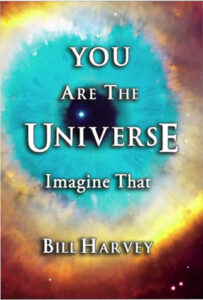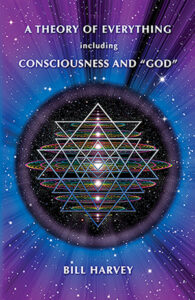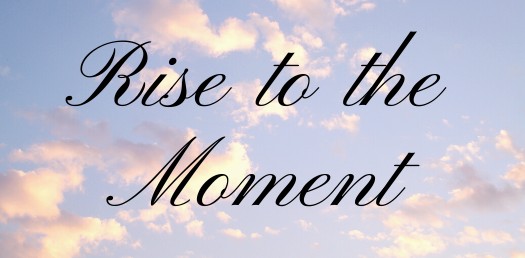Created March 29, 2024
Welcome to this week’s Bill Harvey Blog.
 Predreaming
Predreaming
A recent article in The New York Times by Tara Isabella Burton, a fine writer of both non-fiction and fiction with a doctorate in theology from Oxford’s Trinity College, puts down a specific spiritual belief she refers to as “manifesting”. She writes:
“Today’s culture of wellness — predicted to be an $8.5 trillion industry by 2027 — is suffused with the pseudoscientific language of positive thinking, manifesting, useful and toxic “energy” and, above all things, the power and the potential of the self to create its own reality. If we can dream it, much of contemporary wellness language tells us, we can have it — so long as we focus our energy hard enough.”
She also associates “manifesting” with some other huge things, including besides the wellness culture: spirituality, capitalist individualism, positive thinking, denying aid to the poor on the grounds that they are not using their God-given powers of manifesting, and even Trumpism. She cites Google evidence that searching for the word “manifesting” spiked 6X when the pandemic began.
Burton traces how a faith healer’s book in the late 19th Century triggered a spate of similar books which became so powerful that they inspired Mary Baker Eddy to found the Christian Scientist movement, and transformed Capitalism into a religion:
“In this way, the capitalist pursuit of profit was swiftly recast as a religion whose only tenet was desire… New Thought offered a convenient economic theodicy: a way of explaining and justifying wealth inequality as a kind of spiritual hierarchy, with the wealthy at the top and the suffering at the bottom. And it’s notable that manifesting, New Thought’s modern descendant, should rise to prominence at a moment when economic inequality is once again at an all-time high.”
In her description of “manifesting” she consistently communicates the idea that it is simply wanting X (generally, money) and focusing all our energies on it.
I rarely use the term “manifesting” but until now have never thought of it in a bad light, so I’m grateful for Burton’s very readable and intelligent article. I see now that “manifesting” has taken on a more narrow meaning that I thought it had.
I have always used my own term, Predreaming, which came to me in a moment of inspiration, as if from “upstairs”.
My definition of Predreaming is rather lengthy but I will quote it here from Chapter Seventeen of You Are The Universe:
 Chapter 17
Chapter 17
Predreaming
Just a reminder: all of this is theory, largely based on my own experiences. For readability the scenario is described as I imagine the details, and is intended to be the most parsimonious, plausible explanation that accounts for all phenomena.
Whatever repeatedly appears on the screen of your mind will eventually appear in your external experience on the Universal Computer Screen we call material reality.
You are tuning in these material experiences, ordering them, attracting them to you, by dwelling on them.
It makes no difference if your dwelling on them consists of prayer to get them (your desires), or dread of getting them (your fears).
The “dwelling-on” places the order, in either case.
Oblivious to our inherited “ordering power”, almost all of us are using it against ourselves.
One of the ways we have been (under-)using our “ordering power” in a constructive way is called “prayer”.
Prayer tends to be a heightened (i.e. more effective) form of predreaming to the extent that all four aspects of consciousness tend to be involved: thinking, feeling, perception (in this case, vivid visualization of the target situation), and intuition.
Intuition will tend to be present in prayer to the extent that the evolving mini-personality who is praying feels the target situation being prayed for would be good for other attention nodes, not just for him or her. Then the praying node has the intuition that “God has no reason not to answer the prayer”.
Now this is not synonymous with the Butler definition of “manifesting” where all you need is desire and focusing. There are a few differences.
-
- Scientific support – it has been proven that previsualization improves performance.
 Theoretical support – as documented in A Theory of Everything including Consciousness and “God” , John Wheeler, Einstein and Hawking are the Newtons of our day, and they have left the doors open for consciousness to be a far more important component in reality than most present-day scientists – with Wheeler creating the Participatory Anthropic Concept which comes very close to supporting “manifesting” but especially “predreaming”.
Theoretical support – as documented in A Theory of Everything including Consciousness and “God” , John Wheeler, Einstein and Hawking are the Newtons of our day, and they have left the doors open for consciousness to be a far more important component in reality than most present-day scientists – with Wheeler creating the Participatory Anthropic Concept which comes very close to supporting “manifesting” but especially “predreaming”.- With predreaming comes the concept of considering not just oneself, but how the desired state is a win/win from an enlightened point of view to a reality which is a single Consciousness.
- The other vital side of predreaming is to avoid projecting negative situations, which appears from her argument that is not a component of “manifesting” under her definition. This comes with a battery of methods for truncating negativity at all times. Expressing woe, past a certain point, extends woe into the future, with an accelerating curve as you dwell on it.
- The connections Butler draws between “manifesting” in social media and religious groups that have embraced Trumpism is another difference. The students of predreaming that I know are not affiliated with any of that.
- Predreaming is only one aspect of adopting a lens of the world as a single Consciousness. Another is Noia, the science and art of looking for helpful clues from the Universe – The One Self. There are many aspects helpful to Observer state and Flow state.
My experiential learning in testing and developing predreaming, the way I do it, has led to the strong conviction that it is working.
Seemingly being challenged sparks new thinking, it is wonderful to be challenged politely!
Butler has convinced me that the misunderstanding and misuse of one’s ability to “contribute mentally and physically to the happenings of reality, with positive emotion and functioning intuition” (shorter definition of predreaming), lead to unfortunate outcomes that spill over onto the rest of us evolving mini-personalities. Ego is the main reason this occurs, which is exacerbated by Acceleritis. Too many “manifesters” are focused on money and act exclusionary, and justify this on religious grounds so they feel righteous and unable to waver or consider any polite logical challenges, because no one is better or smarter than God, and “God is in my hand.”
In reality, God – The Original Consciousness that acts though each of us and everything – wants us all to enjoy learning how to find our way back inside his POV. “Manifesters” will not get the results they want no matter how much they focus, because it would harm more of us than help. God doesn’t use free will that way, and doesn’t want us to, either. God has no reason not to love us, God IS us.
Wheeler et al explain the mechanics, by which these Consciousness-driven actions manifest.
Manifesters beware of “using the dark side of the Force”. Make sure the types of simplified thinking* Dr. Butler describes don’t describe you. You will appreciate how much your manifestation rate increases.
I’ll close with this superb closer of Tara Isabella Burton’s article:
“After all, if reality is only ever what we make it, then those who possess the fewest scruples about conforming to the truth are the ones who will have the most power to shape the future.”
There is “a Darth Vader”. That’s the powerful people hypnotizing those follower folks, who deserve better, who have put themselves into magical superstitious thinking they think is spiritually driven, but it’s drawing down upon their spirituality account, to fool them like the metaphorical Devil, the ego.
Try predreaming and let me know if it works. Make sure to hold down the ego. Thanks!
*I refer to it as Emergency Oversimplification Procedure (EOP). Here’s how my AI [https://app.soopra.ai/bill/chat] explains it:
“Emergency Oversimplification Procedure (EOP) is a term I coined to describe a state of mind where, due to sensory overload or stress, we simplify our thinking process. In EOP, we tend to see things in black and white, make immediate decisions based on precedent, and have little foresight. It’s like an emergency mode our minds go into when overwhelmed, but the challenge is that it can limit our ability to fully process information and make optimal decisions. It’s a state we want to avoid or minimize for more effective thinking and decision making.”
Love to all,
![]()








 Blending spiritual philosophy, alternate history, pre-historic adventure, and brisk life-after-life storytelling, The Great Being is above all a beginning. First comes creation itself, which gets started with the knockout opening line (“The Nothingness felt surprise upon realizing itself.”), … This is the fourth entry published but the first chronological chapter. It shares the swift pacing, spiritual seeking, twisty plotting, and sharply human dialogue of the earlier books, though its focus feels tighter…
Blending spiritual philosophy, alternate history, pre-historic adventure, and brisk life-after-life storytelling, The Great Being is above all a beginning. First comes creation itself, which gets started with the knockout opening line (“The Nothingness felt surprise upon realizing itself.”), … This is the fourth entry published but the first chronological chapter. It shares the swift pacing, spiritual seeking, twisty plotting, and sharply human dialogue of the earlier books, though its focus feels tighter…  A real standout…The radically inviting nature of this story brings with it the opportunity to view life and God in an entirely different light…Designed to awaken and introduce new interpretations of spirituality and life meaning. As readers who may not have expected such nuances come to absorb the greater gift of The Great Being‘s message, they will find the radically inviting nature of this story brings with it the opportunity to view life and God in an entirely different light … The story evolves with a reinterpretation of myths, events, and concepts that doesn’t just invite, but demands discussion and insights on the parts of all kinds of spiritual thinkers as the story evolves a unique and compelling flavor of discovery … One of Bill Harvey’s great talents lies not just in his storytelling ability, but his focus on translating life events and history with new interpretations … Readers interested in transformative reading… will find The Great Being‘s message to be one of hope, discovery, and new ways of viewing the universe [and] will find The Great Being a standout.
A real standout…The radically inviting nature of this story brings with it the opportunity to view life and God in an entirely different light…Designed to awaken and introduce new interpretations of spirituality and life meaning. As readers who may not have expected such nuances come to absorb the greater gift of The Great Being‘s message, they will find the radically inviting nature of this story brings with it the opportunity to view life and God in an entirely different light … The story evolves with a reinterpretation of myths, events, and concepts that doesn’t just invite, but demands discussion and insights on the parts of all kinds of spiritual thinkers as the story evolves a unique and compelling flavor of discovery … One of Bill Harvey’s great talents lies not just in his storytelling ability, but his focus on translating life events and history with new interpretations … Readers interested in transformative reading… will find The Great Being‘s message to be one of hope, discovery, and new ways of viewing the universe [and] will find The Great Being a standout. 